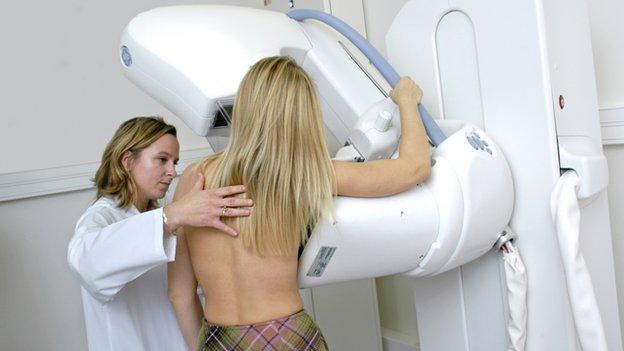Scots nurse to get cancer drug after funding u-turn
- Published
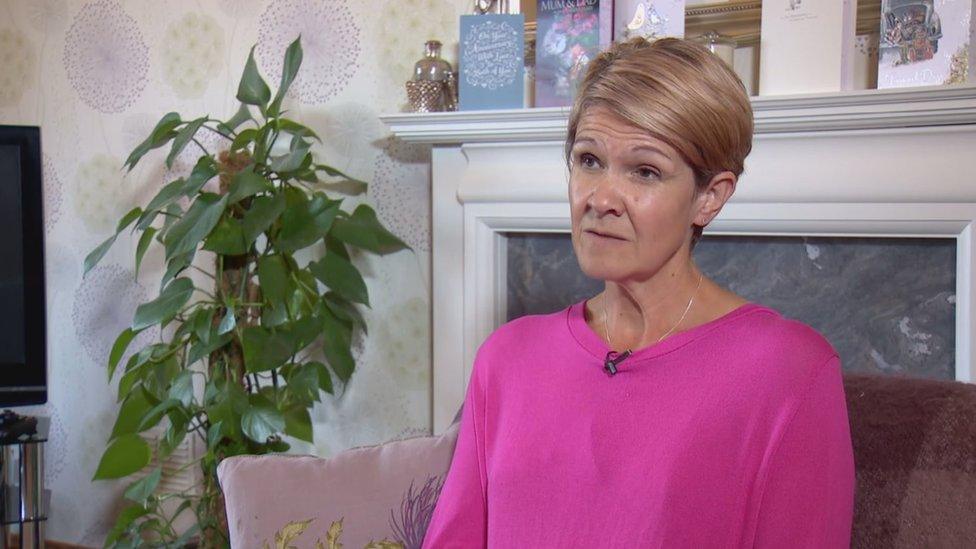
A nurse with cancer who wrote to the first minister asking for reform of drug funding has been told she will now be given her medicine on the NHS.
Anne Maclean-Chang, from Elgin, was initially refused funding for a breast cancer treatment known as Kadcyla.
Nicola Sturgeon told MSPs that NHS Grampian had changed its mind.
However, she was criticised for defending the funding system, which she said was in place to ensure fairness for taxpayers and patients.
Kadcyla is not currently approved for use on the NHS in Scotland or elsewhere in the UK, and Mrs Maclean-Chang's Individual Patient Treatment Request (IPTR) was denied.
After crowd-funding £27,000 towards the treatment, the mum of two wrote a letter to Ms Sturgeon asking for help for herself and other sufferers, as reported in the Daily Record newspaper, external.
Ms Sturgeon told MSPs that it would be "entirely wrong" for politicians to intervene in individual cases, defending the "robust" system of drug assessment.
However, her spokesman later confirmed that Ms Sturgeon's office had contacted NHS Grampian "to find out more about the case" the day before the health board changed its position.
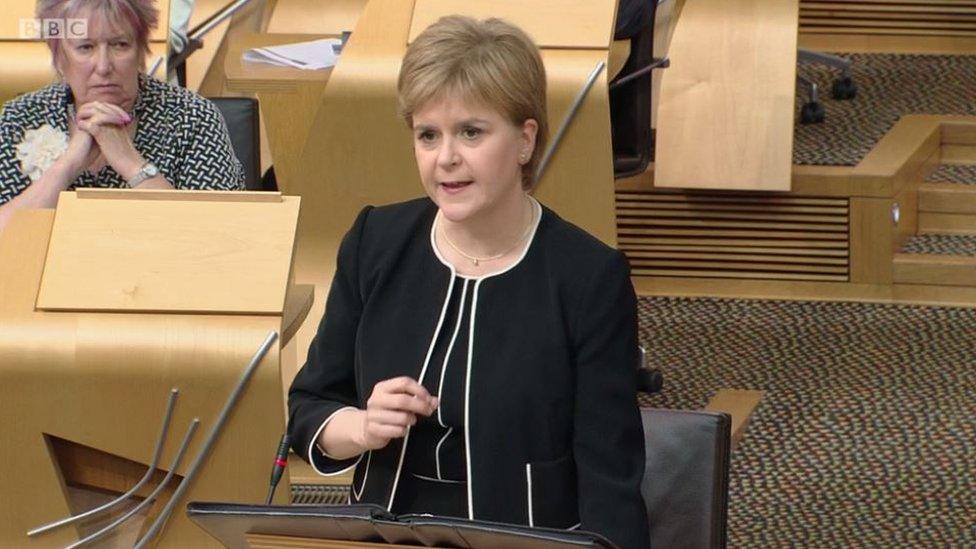
Nicola Sturgeon's office contacted NHS Grampian about the case on Wednesday
The first minister was challenged about the case at her weekly questions session at Holyrood by Scottish Labour leader Kezia Dugdale.
Ms Sturgeon told MSPs that her "heart goes out" to Mrs Maclean-Chang.
Ms Sturgeon said: "We have asked the company which manufactures this drug to bring forward a new application at a fair price so that it can hopefully be generally approved.
"I can advise the chamber that this morning, following discussions with her clinician, NHS Grampian has agreed to fund this drug for Mrs Maclean-Chang. I hope now we can all wish her well in the future."
Ms Sturgeon's spokesman later confirmed that an official from the first minister's office had contacted NHS Grampian on Wednesday, the same day they received the letter.

Analysis by Brian Taylor, BBC Scotland political editor
It is one thing to make generic comments about drug prescribing policy. It is another matter entirely to maintain cool detachment when confronted with a front page, headlined: "Dear Nicola Sturgeon, Please Keep Me Alive".
In summary, Mrs Maclean-Chang's consultant had suggested that use of a particular drug might prolong her life.
Her health board refused to fund the treatment, on generic policy grounds. A request for individual patient treatment was also rejected.
Hence the Record splash. Hence the letter to the FM. Hence questions today. And, hence, a remarkable development. In summary, Mrs Maclean-Chang's consultant had suggested that use of a particular drug might prolong her life.
Ms Sturgeon disclosed that the previous opposition had been overturned by the health board and that the drug would be prescribed after all.
Her office had, apparently, contacted the health board with an inquiry when they received the patient's letter yesterday.
So did this amount to a ministerial intervention? Not so, according to the FM when she answered Ms Dugdale's questions. It was a case of the system ultimately arriving at a suitable outcome.

The Daily Record featured the story on the front page of Thursday's edition, the same morning as Ms Sturgeon said the health board had changed its mind.
Ms Dugdale said "it shouldn't have taken the front page of the Daily Record" for the change to have been made.
She said: "If I can refer the first minister back to Mrs Maclean-Chang's letter, she says 'I am not the only patient who has to battle this unfair and illogical system'.
"Think of all the other people around the country who are waiting for that help. The system has to be reformed so that in future cancer patients don't have to hold bake sales to get money for the cancer treatment that they need."
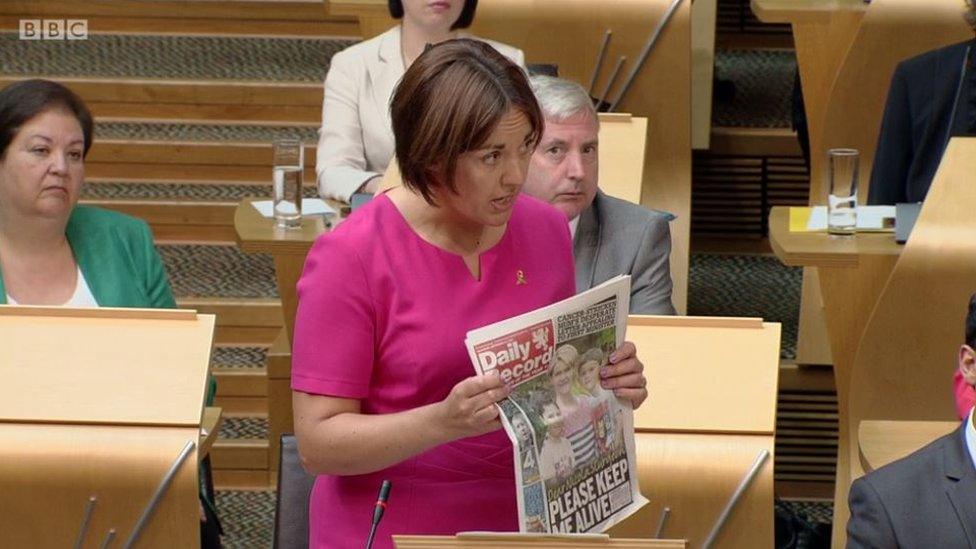
Kezia Dugdale raised the Daily Record story in the Holyrood chamber
In the letter, Mrs Maclean-Chang also said that "the principle of 'free at the point of need' has been lost".
She said: "I feel that the postcode lottery in access to medicines through IPTR means the National Health Service isn't even national anymore.
"I am a patient in need. I am not a statistic, or a news story to be explained. I am a woman whose time and options are running out."
'Difficult decisions'
Ms Sturgeon defended the system, saying politicians should not place their judgement ahead of experts.
She said: "I hope everybody would agree that it is absolutely vital we have these systems in place, because that's how we deliver fairness for patients, in an age when new drugs are coming on the market all the time. It's also how we deliver fairness for taxpayers.
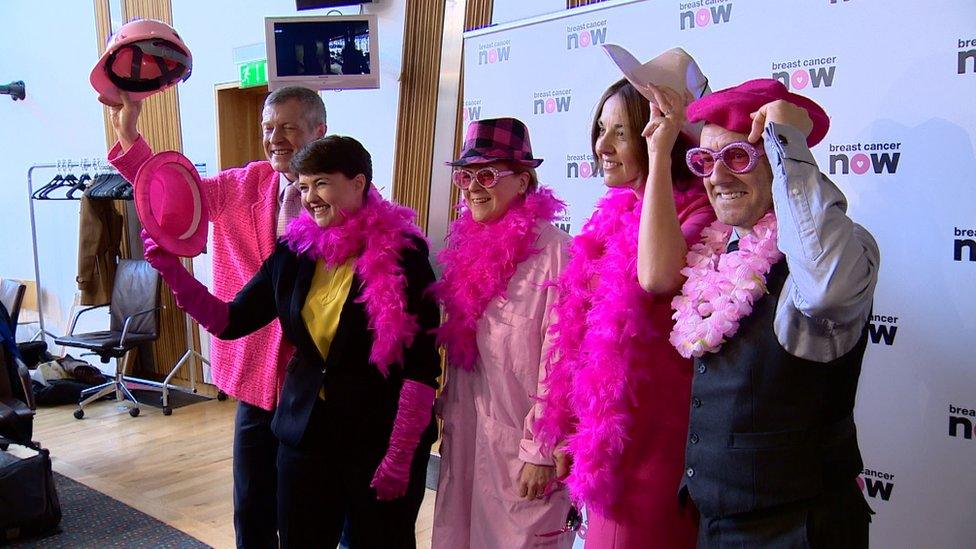
Scotland's party leaders donned pink outfits for a cancer awareness drive at Holyrood on the day Anne Maclean-Chang's case was highlighted
"If we don't have robust systems in place, then effectively we give drug companies a licence to charge whatever they want. These are very, very difficult decisions, but it's vital we have systems in place to make those decisions."
The first minister added: "I would hope that everybody, no matter the sympathy that we feel for every patient in a situation like this, would agree with me that it would be entirely wrong for politicians to substitute their judgement for the judgement of the people who are trusted to make these decisions having receipt of all the information.
"In any system that has to assess drugs, there will inevitably be decisions that are difficult for all of us where drugs are not accessible for a particular patient.
"This is not a case of me and my government intervening, this is a case of the system operating to get a patient the drug that I agree she should be accessing."
'Fix this mess'
Mrs Maclean-Chang later said she was "delighted" that she could now get the drug, but said she still wanted to see action.
She said: "I'm not the only woman who has to go through this confusing and illogical system.
"We need to fix this mess once and for all, not just for me, but for every woman with my disease."
A spokeswoman for NHS Grampian said there were "unusual circumstances" in the case.
She said: "The medical director for NHS Grampian has reviewed the recent Individual Patient Treatment Request decision relating to the provision of Kadcyla for this patient. He has spoken with panel members and the patient's treating clinician to understand the context and circumstances.
"Having considered the unusual circumstances of this case, the medical director has sanctioned the use of Kadcyla in this instance."
Mrs Maclean-Chang case was raised on the day Scotland's party leaders donned pink outfits as part of a Breast Cancer Now awareness campaign.

What is Kadcyla and what does it do?
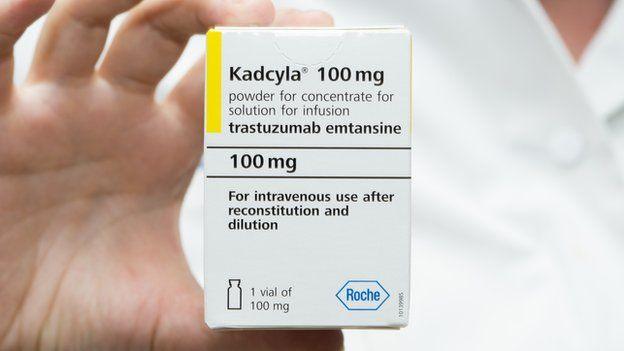
Kadcyla, external is used to treat breast cancer which has spread to other parts of the body.
It is made from two cancer-fighting drugs, the monoclonal antibody trastuzumab (Herceptin) and the chemotherapy drug emtansine.
The treatment is only right for patients with a certain type of tumour - one that is HER2-positive.
Kadcyla has been made to deliver chemotherapy into HER2-positive cancer cells and kill them.
It is designed to cause less harm to normal cells.
However, there may be side effects to the liver, heart and lungs.
BBC health correspondent Nick Triggle wrote about the drug in 2014, spelling out how its high cost was causing a funding conundrum.
- Published16 November 2015
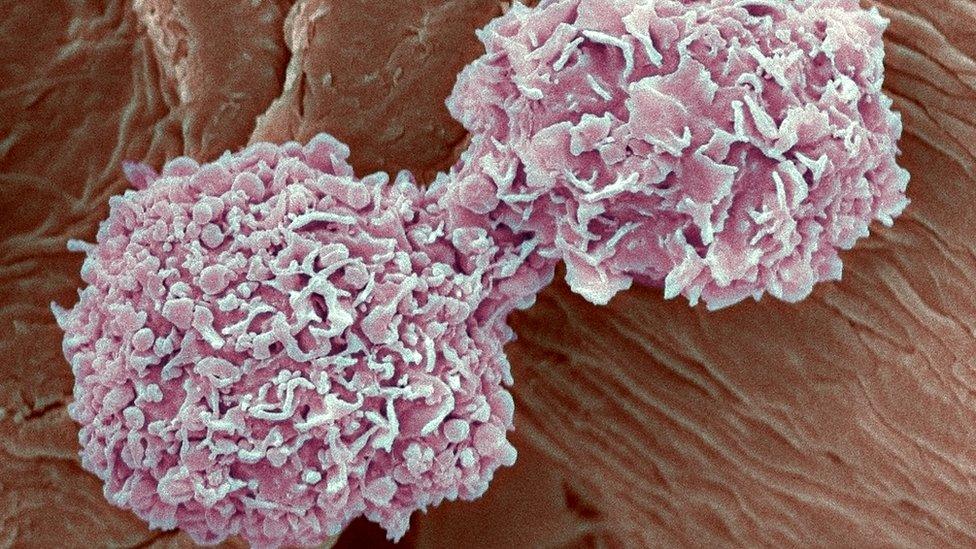
- Published13 October 2014
